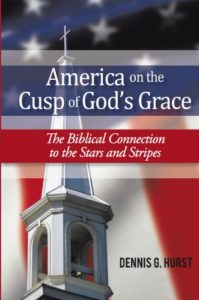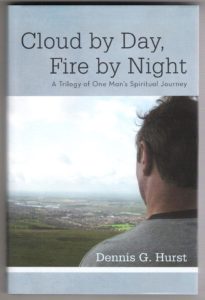Tags
American Graffiti, American Pie, Christianity, Conservatism, Don McLean, Everlasting, Experience, Family, Freedom, Genealogy, God, Jesus Christ, Lessons, Liberty, Life, Posterity, Teaching, United States, Wisdom
Share it
The music died because Buddy Holly merely wanted what every touring musician wants: to do laundry.
Shoved into unheated buses on a “Winter Dance Party” tour in 1959, Holly — tired of rattling through the Midwest with dirty clothes — chartered a plane on Feb. 3 to fly from Clear Lake, Iowa, to Fargo, N.D., where he hoped he could make an appointment with a washing machine. Joining him on the plane were Ritchie Valens and, after future country star Waylon Jennings gave up his seat, J.P. Richardson, a.k.a. “the Big Bopper.” Taking off in bad weather with a pilot not certified to do so, the plane crashed, killing everyone aboard. The toll was incalculable: The singers of “Peggy Sue” and “Come On Let’s Go” and “Donna” and “La Bamba” were dead. Holly was just 22; incredibly, Valens was just 17. Rock and roll would never be the same.
Fast-forward thirteen years, when Don McLean wrote a song about this tragedy: “American Pie,” an 8½-minute epic with an iconic lyric about “the day the music died.” Now, the original 16-page working manuscript of the lyrics has been sold at auction for $1.2 million.

Left: Don McLean in 1972. Right: McLean in Waterford, N.Y., in 1968. (Photos by AP)
What does it all mean? Well, just what a song about the day the music died seems like it might be about: the end of the American Dream. In the same genre` as the iconic George Lucas movie of the same era, American Graffiti, Don McLean was very much in touch with what his audience was experiencing. For commercial radio purposes, the song was recorded in the “itchy-ear” limit of 2 1/2 – 3 minutes, but it was the original 8 1/2 minute version that McLean’s fans repeatedly called in to the stations to play.
As ideals of the 1960s turned into the cynicism of the 1970s, this feeling was widespread enough to send the song to No. 1 in 1972, and to yours truly, using it as motivational inspiration on my way to my soccer games in those heady early-mid 70s of trophy excellence.
“American Pie is the accessible farewell to the Fifties and Sixties,” Guardian music critic Alexis Petridis wrote in the catalogue. “Bob Dylan talked to the counterculture in dense, cryptic, apocalyptic terms. But Don McLean says similar ominous things in a pop language that a mainstream listener could understand. The chorus is so good that it lets you wallow in the confusion and wistfulness of that moment, and be comforted at the same time. It’s bubblegum Dylan, really.” (Perhaps of note: Dylan’s manuscript of “Like a Rolling Stone” sold for $2 million in June, besting McLean’s measly $1.2 million.)
Ahead of the Christie’s auction, McLean did offer some advice to all the budding Don McLeans out here. “I would say to young songwriters who are starting out to immerse yourself in beautiful music and beautiful lyrics and think about every word you say in a song,” he said.
Couldn’t agree more, so here is American Pie unwrapped in a video montage, with a further link at the end of the piece featuring McLean in a live performance (and believe me, he has made much more than $1.2 million on this classic!)…
BYE, BYE, MISS AMERICAN PIE…
A long, long time ago, I can still remember how that music used to make me smile. And I knew if I had my chance, that I could make those people dance; and maybe they’d be happy for a while. But February made me shiver, with every paper I’d deliver; bad news on the doorstep, I couldn’t take one more step. I can’t remember if I cried, when I read about his widowed bride; but something touched me deep inside, the day the music died
[Chorus]
So bye-bye, Miss American Pie, drove my Chevy to the levee, but the levee was dry; and them good old boys were drinkin’ whiskey and rye, singin’ “This’ll be the day that I die, this’ll be the day that I die”
[Verse 1]
Did you write the book of love, and do you have faith in God above if the Bible tells you so? Now do you believe in rock and roll? Can music save your mortal soul? And can you teach me how to dance real slow? Well, I know that you’re in love with him ‘cause I saw you dancin’ in the gym, you both kicked off your shoes, man, I dig those rhythm and blues. I was a lonely teenage broncin’ buck with a pink carnation and a pickup truck, but I knew I was out of luck, the day the music died
[Chorus]
[Verse 2]
Now for 10 years we’ve been on our own, and moss grows fat on a rollin’ stone, but that’s not how it used to be; when the jester sang for the king and queen, in a coat he borrowed from James Dean, and a voice that came from you and me; Oh, and while the king was looking down, the jester stole his thorny crown, the courtroom was adjourned, no verdict was returned. And while Lenin read a book on Marx, the quartet practiced in the park, and we sang dirges in the dark, the day the music died
[Chorus]
[Verse 3]
Helter skelter in a summer swelter, the birds flew off with a fallout shelter, eight miles high and falling fast; it landed foul on the grass, the players tried for a forward pass, with the jester on the sidelines in a cast; now the halftime air was sweet perfume, while the sergeants played a marching tune, we all got up to dance, Oh, but we never got the chance, ‘cause the players tried to take the field, the marching band refused to yield, do you recall what was revealed the day the music died?
[Chorus]
[Verse 4]
Oh, and there we were all in one place, a generation lost in space, with no time left to start again; so come on, Jack be nimble, Jack be quick, Jack Flash sat on a candlestick, ‘Cause fire is the devil’s only friend; Oh, and as I watched him on the stage, my hands were clenched in fists of rage; no angel born in Hell, could break that Satan’s spell. And as the flames climbed high into the night, to light the sacrificial rite, I saw Satan laughing with delight, the day the music died
[Chorus]
[Outro]
I met a girl who sang the blues, and I asked her for some happy news, but she just smiled and turned away. I went down to the sacred store where I’d heard the music years before, but the man there said the music wouldn’t play. And in the streets, the children screamed, the lovers cried and the poets dreamed, but not a word was spoken, the church bells all were broken; and the three men I admire most, the Father, Son and the Holy Ghost, they caught the last train for the coast, the day the music died…
And they were singin’ bye-bye, Miss American Pie, drove my Chevy to the levee, but the levee was dry; and them good old boys were drinkin’ whiskey and rye, singin’ “This’ll be the day that I die, this’ll be the day that I die”
[Chorus]
Excerpted from the Washington Post, full story here; American Graffiti link right here; see Don McLean performing live here…; and some interesting info from SongFacts…

 Link To DennisGHurst.com
Link To DennisGHurst.com


